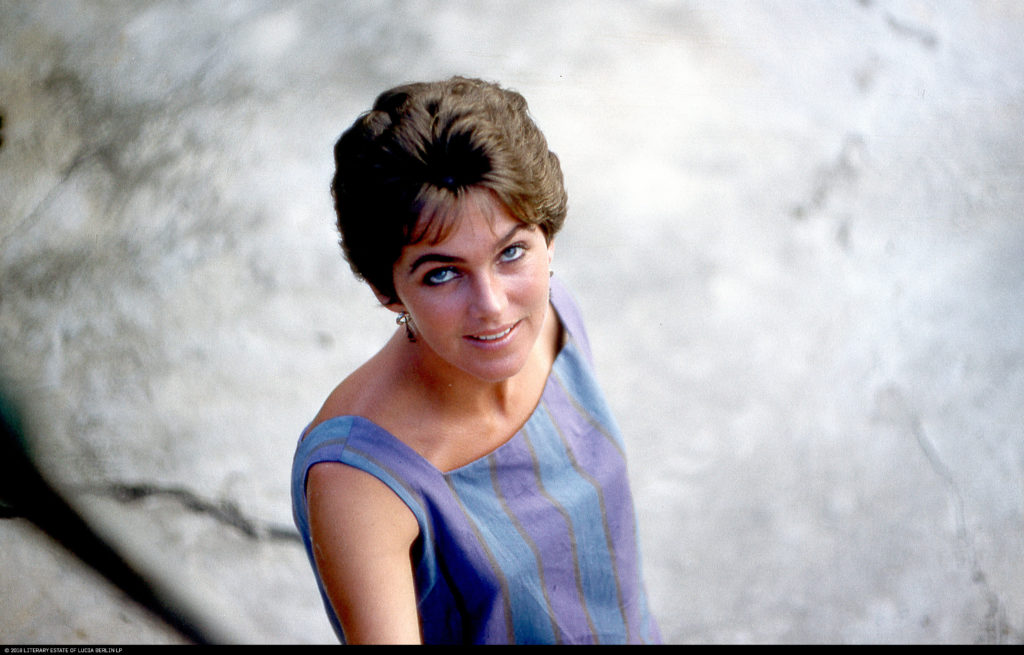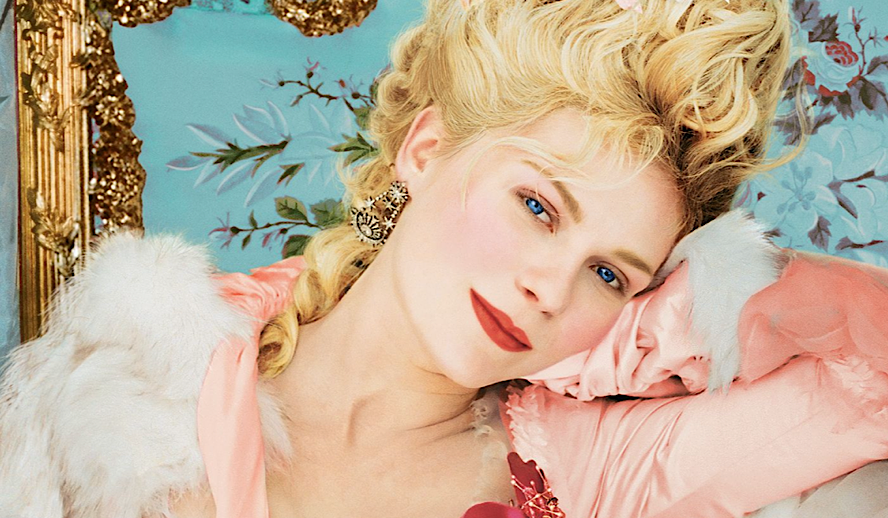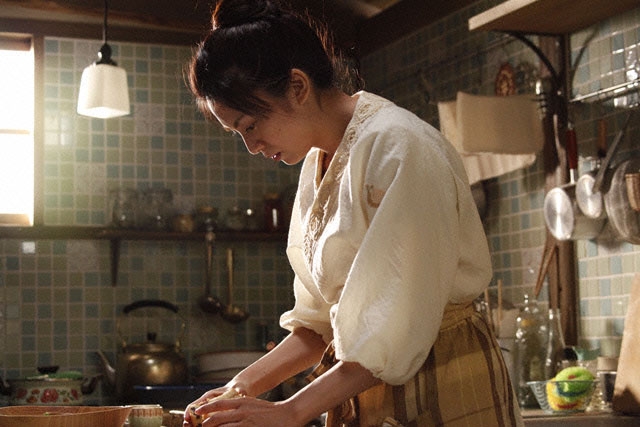When people ask me what’s my favourite book, I always have a hard time answering. There are some books I really enjoy while reading them, but, once finished, they don’t leave any trace in my memory. Other books are particularly tough to read to the end and might take months and months and the reading itself feels more like a burden than a pleasure, but eventually, they change something inside me. Other books are significant for a specific period in my life and then simply lost their charm. So, at the end of the day, it’s definitely not an easy question. What I can say for sure is that a few books had such an impact on me to change my life and have a long-term influence.
This is not going to be a list of the books that I necessarily enjoyed the most while reading them, but the ones that somehow had a long-term impact. They are in no particular order.
1.Brothers Karamazov, Fedor Dostoyevsky

This is without a doubt the prototypical of what I would call in Italian a Russian mattone (literally, a brick, expression used to describe a particularly heavy, dramatic and long book). The kind of book you say you liked when you want to put on intellectual airs. It was a book I always had at my parents’ house, and throughout my childhood, I had looked at it with a mixture of awe and revulsion. Then, one day, in a transitional period between a job as a waitress in a pub and a trip to a remote village in Ireland (Gleann Cholm Cille), I decided to give it a chance, I don’t know what prompted me to read it, perhaps I needed a little deeper reading. The plot, as with almost all of Dostoyevsky’s books, is quite meager. A horrible father, three (four) sons with contrasting personalities but connected by a strong passionality, two women, and a murder. There are whole depressing chapters, such as the hundred pages devoted to Starech’s life, but then, hidden among dull and somewhat weighty pages, pages of intense beauty and depth. Like life itself gives us wonderful moments after years of grayness. The strengths of this book are the dialogues and the images of certain scenes so intense that they still give me the feeling of having lived them on my skin. It’s hugely renowned the dialogue between Ivan (the intellectual and brainy son) and Alyosha (the mystical and good son) about the existence of God or the one between Ivan (in delirium) and the devil or even the whole part about the trial of Mitya (my favorite character, the first son, impulsive and uncontrollable, but with a generous soul).
But there is one scene that, in my opinion, stands out from all the others, one of the most beautiful scenes in all literature, an image that has stayed with me so much that I almost feel as if I really saw it. When Katerina goes to visit Mitya because he promised that if she went in person to ask him, he would give her the money she needed. Of course, his intention was to humiliate her, probably to take advantage of her, but in the end, in front of her beauty, her pride, her greatness, he feels as small as an insect, bows to her, and gives her the money without doing anything else.
At that moment I was at home, it was dusk, and I was about to go out, I had dressed, combed my hair, perfumed my handkerchief, picked up my hat,
when the door suddenly opens wide, and before me, in my apartment, Katerina Ivanovna appears.
Very strange things happen sometimes: no one on the street had seen her coming, so much so that it went completely unnoticed in the city. I had then rented the apartment from two decrepit old women, wives of clerks, who took care of me, two dutiful women who obeyed me in everything, and, on my order, about the incident remained as silent as fish. Of course, I immediately understood the situation.
She came in and looked me straight in the face, her dark eyes had a determined, even insolent look, but on and around her lips her indecision was visible.
“My sister told me that you would give me four thousand five hundred rubles if I came to get it–from you in person. I came–give me the money!” She did not resist, her breath caught, she was frightened, her voice cracked and the ends of her lips, and the features around her lips, trembled. […]
My first thought was from Karamazov. Once, brother, I was bitten by a tarantula and stayed in bed with a high fever for two weeks: well, even then I had the feeling that a tarantula had bitten my heart, a bad insect, you know?
I wrapped it in my gaze. Did you see her? She is just a splendor. But in that moment she was not splendid only in that sense. In that instant she was splendid as she was grateful to me, while I was a rascal, because she was sublime in her generosity and the sacrifice she faced for her father, while I was a bug. And here it was that on me, on a bug, on a rascal she depended entirely, entirely, as she was, body and soul. She was cornered. I will tell you frankly: this thought, the thought of the tarantula, possessed my heart to such an extent that it almost failed from suffering. It then seemed that I would find no resistance: I would have to act just like a bug, an evil tarantula, without any mercy… I even lacked breath. Listen: of course the very next day I was going to go and ask for her hand in order to end it all in the most honorable way, and in such a way that no one would ever know and could ever find out. For even though I am a man of low appetites, I still have my honor.
And here, at that same moment a voice whispered in my ear, ‘If you go tomorrow to propose marriage to her, such a woman will not even come out to receive you and order the coachman in the courtyard to chase you away. ‘Brag all over town, I’m not afraid of you,’ she will tell you!” I cast a glance at the girl, that voice wasn’t lying: of course it would turn out that way. She would have me grabbed by the scruff of the neck and kicked out, I could already predict it from the look on her face at that moment. I felt myself seething with wickedness, I felt like playing the most abject trick on her, a real filthy, merchant’s trick: to look at her mockingly, and there, as she stood there in front of me, to astound her with the intonation that only a merchant knows how to use:
“Ah, those four thousand rubles! But I was joking, what are you saying? You were too gullible, young lady. A two hundred rubles, those yes, gladly, gladly, but four thousand, that is not a sum to throw away so lightly, miss. You have gone to unnecessary trouble.”
You see, clearly I would have lost everything, she would have run away, but it would have been a hell of a revenge that would have rewarded me for everything else. I would have tormented myself then all my life with remorse, but what a taste to combine that shot! Can you believe it, it had never happened to me with anyone, with any woman, to feel so much hatred as in the moment I looked at her, here, I swear to you: for three, five seconds I looked at that woman with a terrible hatred, with that same hatred that is detached from love, from the craziest love, by a single hair!
I went to the window, rested my forehead on the frozen glass, I remember that on contact with the frozen surface I felt it burn like fire. I didn’t hesitate long, don’t be afraid, I turned around, went to the desk, opened the drawer and pulled out a bearer bond worth five thousand rubles at five percent (I kept it in my French vocabulary).
Then I showed it to her, silently, folded it, gave it to her, opened the door myself that gave into the hallway, and, backing up a step, I gave her the most respectful, the most devoted of bows, believe me! She winced all over, stared at me for a second, turned white as a sheet, and suddenly, without saying a word either, nor making any sudden movement, prostrated herself at my feet with a sweet, deep, quiet bow, until her forehead touched the ground with her forehead, not as they teach at boarding school, but in the Russian way! Then she jumped to her feet and ran away.
After she was gone, I stood next to the sword; I drew my sword and wanted to slit my own throat, for what purpose, I don’t know, it was utter nonsense, of course, but it must have been from excitement. You understand, don’t you, that one can kill oneself for enthusiasm?
But I didn’t slit my throat, I just kissed the sword and put it back in its scabbard, which I could have very well avoided telling you. You see, even now, as I was telling you about my inner conflicts, I went on a bit to incense myself.
But let it be so and let the devil take all those who spy into the human soul!
So here is the “episode” from the past that binds me to Katerina Ivanovna. Now you and brother Ivan know it, only you!”
For this scene alone I decided to study Russian literature in college, and although in practice it didn’t serve me very well, I didn’t regret it.
Some time ago, in a bar in Philadelphia, I was approached by a young military man on leave. He seemed to me to be the classic somewhat arrogant and superficial man who had to be able to score a pretty girl to be seen by his buddies (and that was probably his intent). Yet there was something dark and deep that bound me to him, we began to talk about life, and literature, for both of us the reading of The Brothers Karamazov had been very meaningful, but when he told me that the character he most identified with was the father Fedor I felt my blood run cold (Fedor is a horrible person). When he asked me to follow him to his hotel I refused, although with some inner conflict because, as indeed I told him, I felt a vulnerability and tension inside me at that moment that I had not expected, but I knew that he was the kind of person who the next day would be ashamed of his own vulnerability and treat me coldly. This is another demonstration of how this book always carries with it a sense of dark intensity in my life. And now we continue with the list.
2. Witch Like Me (Strega Come Me), Giusi Quarenghi

And I must say that this book really bewitched me, it was one of the few books I reread at least 3-4 times because I liked it so much. The story is vaguely reminiscent of HArry Potter, a 14-year-old girl finds in the attic the diary of her grandfather’s second wife in which we find the story of an 11-year-old girl who is accepted into a school of witchcraft. Guia, as the little witch is called, is an out-of-the-ordinary child, curious and independent, struggling to conform to the norms imposed by the school. Emblematic are the night questions that are asked every night to the female students to classify them and to which she always answers in an alternative way.
“Would you like to be male or female?”
” I would like to be both.”
“Would you like to be made of water, air, earth or fire?”
” I would like to be made of milk.”
There was everything for me in this book when I was a little girl, the magic, the remote boarding school in the country, the friendship mixed with admiration (and maybe more) with the older girl Dorotea (“she was like her name, beautiful and a little strange”), there is the story of a little girl becoming a woman, a body growing up. I think it describes one of the most beautiful scenes I’ve ever read (actually I’ve read just a few because it’s something we never talk about) about first menstruation and breast growth (“it grows out of me, but it’s still me, it’s still all me”). And then these moments of discovery and solitude in nature, like when she goes out at night to look at the stars and freezes her butt off and a school witch gives her a nice hot bath. I have always loved so much the chance nighttime encounters inside homes, that intimacy that comes from talking under your breath over a cup of tea. When I was a little girl and my best friend used to come and sleep over at my grandfather’s country house, we would spend whole nights talking, drinking coffee, watching movies, and laughing under our breath so we wouldn’t be overheard. We would go to sleep around 6 a.m. and I don’t know how we would then find the energy to wake up a few hours later.
It’s a small, shy, but powerful book, able to speak of rebellion and mystery with great delicacy and elegance. Without a doubt it is the childhood book that has left the most traces inside me.
3. A Manual for Cleaning Women, Lucia Berlin

“The world just goes along. Nothing much matters, you know? I mean really matters. But then sometimes, just for a second, you get this grace, this belief that it does matter, a whole lot.”
This is definitely the book I would have wanted to write if I had written a book. Another book that I did not expect to like so much and instead it got inside me. My father gave it to me for my birthday when I turned 22 and I have to say both because of the cover and the horrible title in Italian (the woman who wrote short stories) it didn’t inspire me much. For some reason short story collections had always seemed uninteresting to me, a mishmash of little stories thrown in. How wrong I was.
This is, indeed, a book of short stories, but it’s actually like chapters of a single story, but without an articulated plot to hold them together. A series of episodes, photographs of life, seemingly unconnected, but with a strong common identity at their base: the writer. In fact, the stories appear strongly autobiographical, not least because she often uses her own name and some stories are written in the first person. But we are never sure that they are 100 percent true; the feeling is that of a reality not necessarily embellished, but modified, bent to the services of literature. Each of these stories is a portrait of an adventurous and intense woman, with a nomadic life, affected by great sorrows, such as scoliosis, abandonments, and the struggle of raising four children alone, but who nevertheless manages not to be crushed by them, turns them into small works of art. Each narrative vibrates with life and truth, Lucia Berlin manages to get to the marrow of things without turns of phrase, without unnecessary frills. She manages to narrate without conceit or unnecessary heaviness, indeed some of the tales are incredibly funny and the overall tone is light, though intense.
The context is that of America between the 1940s and the 1970s mostly, the period she lived through. That America of provincials, of nomads, of derelicts, like the alcoholic Native American she meets in the laundry. This is a setting that’s always been dear to me because I’ve always resonated with this longing to find a home and a belonging that can’t be found, this restlessness and thirst for life, this jolting search for stability that’s then blown in the name of adventure. I don’t know if I will ever write a book in my life, but if I do I would like to write something like this.
4. My Life, Chekhov
The Superintendent said to me, “I only keep you out of regard for your worthy father; but for that you would have been sent flying long ago.” I replied to him, “You flatter me too much, your Excellency, in assuming that I am capable of flying.”
Here is another short story and here is another Russian. Chekhov, however, unlike Dostoyevsky, does not wallow in heaviness and a sometimes somewhat morbid and self-serving intensity. He is a melancholic, however, a melancholic who tries to be light, and above all he is a doer, he does not sit there complaining. I wrote my college dissertation on him, and if I had to choose a writer to go out to dinner with I think I would choose him.
“My Life” is not about Chekhov’s life, but it is a fictional story; he wrote many short stories, and this one is definitely my favorite. The main character is Misail (a perfect name for a cat in my opinion), a young man who is the son of an architect and decides to leave his good job to go live on a farm and devote himself to manual labor. He falls in love with Masha, a girl full of dreams, but superficial, who after a while gets tired of his bucolic dream and pursues her dream of being an actress (or was she a singer ? I can’t remember). Masha is the kind of person I might have wanted to be, but am not at all. Able to make myself loved and throw myself into things, but equally able to let it all slip away and move on. “Everything passes,” this is the phrase engraved on King David’s ring that she gets engraved on a ring. This is the motto of her life, everything happens, gives us something and inexorably passes, goes away, it is up to us to learn to float on the waves and not get trapped by the past.
“King David had a ring with an inscription on it: ‘All things pass.’ When one is sad those words make one cheerful, and when one is cheerful it makes one sad. I have got myself a ring like that with Hebrew letters on it, and this talisman keeps me from infatuations. All things pass, life will pass, one wants nothing. Or at least one wants nothing but the sense of freedom, for when anyone is free, he wants nothing, nothing, nothing.”
Misail, however, had really invested in that new life in the country, had really taken risks, it was not a game for him as it was for Masha. And when you take real risks, you know, it’s not so easy to let it all slip away. In fact, he sees it differently.
“If I wanted to order a ring for myself, the inscription I should choose would be, “Nothing passes away.” I believe that nothing passes away without leaving a trace, and that every step we take, however small, has significance for our present and our future existence.”
So many times I try to be like Masha, but then I see that I can’t help but be like Misail. Nothing passes away. If I were ever to get a tattoo, maybe I would get just that.
5.Marie Antoinette: The Journey, Antonia Fraser

“Looking without passion is always a good plan where history is concerned. But is it really possible with regard to the career and character of Marie Antoinette?”
How has this book influenced my life? Undoubtedly it uncovered my interest in people’s intimate lives, my curiosity about everyone’s secret garden. If they wrote a biography of the ordinary people I see every day I would probably read some of them. I have always loved knowing those little things that no one sees from the outside and that make each of us so human and unique.
For some mysterious reason, the figure of Marie Antoinette fascinated thousands of people for centuries after her death as very few other historical figures did. And not because of her merits or achievements, but probably because of her being herself despite the History that swept over her. Marie Antoinette was indeed an ordinary person, not too beautiful, not too intelligent, not too good, nor too bad. But she had a charm and strength of identity that was truly out of the ordinary, capable of bewitching both those who knew her in person and those who, like me, merely read her biography.
6. The Restaurant of Love Regained, Ito Ogawa

“There are things that can’t ever come back. But at the same time, although they can’t return, remain eternally present. And then there are a lot of things, dormant somewhere in this world, that you only have to search patiently to find them.”
It may be because of the setting and the theme of food and love, or because of the curious way in which this book showed up in my life, but I still keep a good memory of it. It was a book I had at home, probably someone’s Christmas present, and one day a high school friend of mine came over and I lent it to her. She returned it to me with a thank-you note inside. A few years later, the summer after high school while I was in Brazil visiting my aunt, both my aunt and I read it and it left both of us with a feeling of well-being and optimism. A few days later, walking in the streets of São Paulo’s Japanese neighborhood, I saw the pirated DVD of this book on a stall and, even though it was only in Japanese, I decided to buy it. The film seemed to me to be a Japanese version of Amélie.
I cannot say that it was a book that turned my existence upside down, but somehow it entered my imagination as a small happy island, a message of optimism.

